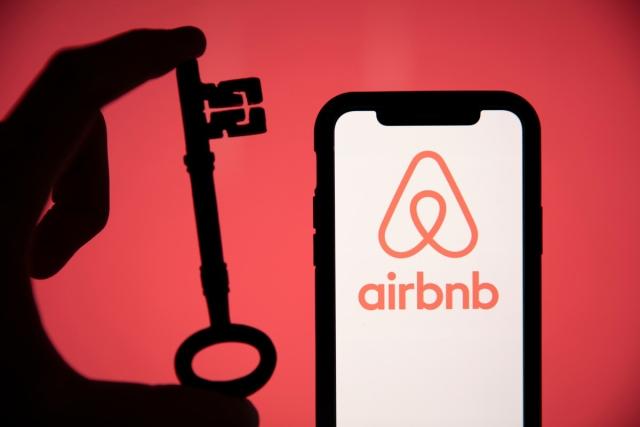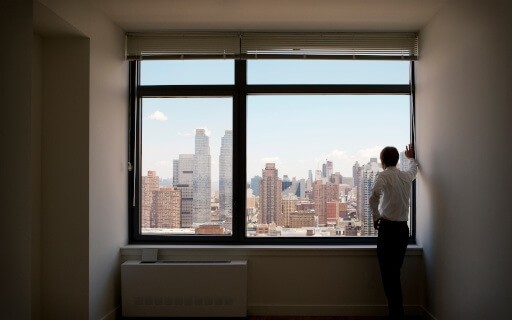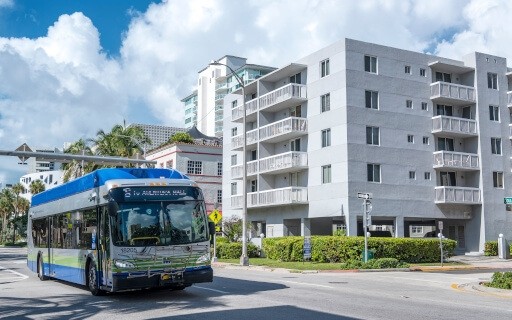
There are several routes you can take when investing in a rental property. You can go the traditional path and rent out your property with a long-term lease. Or you can jump on the short-term trend and list your property as a vacation rental on Airbnb.
Both options have their fair share of pros and cons. So, before taking the next step, determine what matters most to you and your rental business. Are you seeking a stable income with long-term tenants, or is your property better suited for short-term stays and increased cash flow? Knowing your priorities and evaluating the pros and cons of each option will help you make the best decision for your business.
In this article, we’ll explore the debate of Airbnb vs. long-term rentals by answering some of these commonly asked questions:
- Airbnb vs. renting out long-term: what’s the difference?
- What should I consider when choosing between Airbnb and long-term renting?
- What are the pros and cons of owning an Airbnb?
- What are the pros and cons of owning a long-term rental?
Airbnb vs. Renting Out Long-Term: What’s the Difference?
Before we get into the nitty gritty of this debate, let’s cover some basics about renting out a property on Airbnb vs. renting it out with a long-term lease.
If you’ve vacationed anywhere in the past decade, you’re likely familiar with Airbnb. This online marketplace connects travelers with “hosts,” or property owners looking to rent out their property for short- and long-term homestays. Guests can book anything from a beachfront condo to a mountain home to even just a spare room in a house. These bookings are typically used for vacations and short-term stays. However, hosts can offer long-term stays, 28 nights or longer, if they so choose.
Traditional renting models, too, offer a “long-term stay.” However, in this context, “long-term” usually means about 12 months. Long-term lease rental agreements are anywhere from six to 15 months. However, most consider a one-year lease to be the industry standard. This lease contractually binds a landlord and a tenant for the duration of their occupancy, enforcing obligations for both parties, such as rent payment and property upkeep.
So, if you’re asking, “What’s the difference between an Airbnb and a long-term rental?” Well, the short answer is the length of stay and contractual obligations. Airbnb offers shorter stays and fewer contractual obligations, while long-term rentals offer longer stays and more legally binding commitments between the landlord and tenant. However, there’s much more to unpack when it comes to how these two options differ and what it means for property owners.
Things to Consider When Choosing Airbnb vs. Traditional Renting
There’s much to consider when deciding the fate of your rental property. Factors like location, market demand, financial goals, and those listed below should all come into play when weighing your decision.
Rental income
Most landlords' top concern when choosing a rental model is their bottom line. While some prefer the consistent rental income that comes with a long-term rental, others might prioritize the higher profit potential of an Airbnb property.
When you lease a long-term rental, your rental income is locked in at the same rate for the duration of the lease. Each month, when your tenant pays rent, you will receive the same amount of revenue, ensuring a steady cash flow and financial stability. For many landlords, these two components take priority in their rental business, which is why they ultimately decide to rent out their property long-term.
Vacation rentals, on the other hand, offer more flexibility in pricing. With an Airbnb property, you could set a lower rental rate for one week and double it for the next. This strategy, known as dynamic pricing, allows you to adjust rates based on market demand and seasonality. However, remember that this pricing model won’t provide the stability of a long-term lease. For example, if you’re renting out a beachfront property, you might have vacancy periods over the off-season, resulting in no rental income during certain times of the year.
Rental turnover
Rental turnover is something every landlord must face at some point in their career. However, those with vacation rentals could experience it more often. Every time a guest checks out of your Airbnb property, whether they were there for two days or two weeks, the property must be cleaned and prepared for the next stay. This process not only takes time but also costs money, especially if you rely on professional cleaning services to restore the property to peak condition.
With a long-term rental, rental turnover is much less frequent. On average, you’ll probably have to deal with rental turnover once a year when a tenant moves out. However, if you’re intentional about renter retention, you may be able to avoid tenant turnover for multiple lease cycles. This can save you a significant amount of time and money that would go toward restoring your rental and finding a new tenant.
Upkeep and recurring expenses
Frequent rental turnover comes with more recurring expenses. So, to no surprise, a vacation rental will cost you more when it comes to routine property upkeep. Not to mention, it might also generate more upfront costs, as you’ll have to fully furnish and stock the property before you can open it up to guests. Some expenses you will likely have to account for are décor, bedding/towels, kitchen utensils/appliances, and standard food items like coffee and sugar.
Traditional rental properties won’t require as frequent or expensive upkeep. Your tenant will bring their own furniture and food, and you won’t be responsible for getting the property professionally cleaned every couple of weeks. As a landlord, your main financial responsibility will be general maintenance and emergency repairs. Most landlords budget for these costs ahead of time, leaving wiggle room for potential costly emergencies. And, while these unforeseen costs can add up, they’re usually less than the recurring expenses of an Airbnb property.
Tax considerations for long-term rental vs. short-term rental
Taxes are another important thing to consider when choosing your rental property type. When going the traditional route, you’ll be responsible for the run-of-the-mill rental expenses like property tax, mortgage interest, and operating costs. However, you might also qualify for several tax deductions when it comes time to file, which can significantly reduce your taxable income.
In terms of Airbnb and short-term rentals, your tax situation will depend on the use of the property. For any profits received through guest stays, you will be responsible for reporting and paying taxes on that rental income. However, if your rental income is considered short-term, meaning if you rented out the property for 14 days or less for the year, you won’t have to pay taxes on that income.
Airbnb Investment Pros and Cons
While investing in an Airbnb property may seem appealing for your rental business, it’s important to evaluate this option from all sides. Renting out a vacation property has an equal share of upsides and downsides, which we’ll break down below:
Pros of renting on Airbnb
More flexibility
One of the biggest advantages of renting out an Airbnb is flexibility. Because the property isn’t locked down by a tenant, you’ll have the flexibility to use and alter your Airbnb as you please. For example, you might offer the Airbnb to friends or family during certain times of the year. Or you might even plan a getaway for yourself! Owning a vacation rental provides this opportunity for personal use and enjoyment, something that a traditional long-term rental doesn’t offer.
High-profit potential
While on the topic of flexibility, let’s talk about profit potential. Earlier, we mentioned how Airbnb allows for more flexible pricing, as you can alter rates based on market demand, seasonality, and other influential factors. For example, if you own a beachfront property, you might increase rates during the summer or over high-demand holiday weekends. This pricing strategy can yield higher profits, potentially exceeding the monthly revenue of a long-term rental in just one guest stay.
No lease agreement
Owning an Airbnb means not having to deal with the complexities and formalities of a lease agreement. Though some landlords appreciate the concreteness of a formal rental agreement, others enjoy the freedom of managing their rental without one. With an Airbnb, you can set your own rules and guidelines for guests to follow without being confined by a contractual agreement. If a guest doesn’t adhere to your rules, you can discuss the matter with Airbnb.
Cons of renting on Airbnb
Seasonal vacancies
Earlier, we mentioned how vacation rentals pose the risks of seasonal vacancies, which could be challenging if you need consistent rental income. Depending on your property’s location, you may experience lull periods with minimal bookings. For example, beachfront properties may attract fewer guests in the colder months, pausing your cash flow temporarily. This is where the stability of a long-term rental can be beneficial.
More upfront costs
Upfront costs are another concern when it comes to an Airbnb investment. As mentioned earlier, renting out a vacation home means fully furnishing and stocking the property with items like kitchen supplies and standard food items. These upfront expenses, along with recurring rental turnover costs, can add up quickly. That said, make sure your budget has room for this influx of costs before you go full steam ahead on an Airbnb rental.
Legal restrictions
Owning a short-term rental means abiding by short-term rental laws, which can differ from those of long-term properties. Before investing in a vacation rental, make sure to check your state and local laws for potential parameters on short-term rentals. Some states may require specific licensing to manage a short-term rental, while others might dictate required vacancy periods during certain times of the year. Make sure to do your research beforehand so you’re not hit with any unexpected legal fees or penalties.
Long-Term Rental Investment Pros and Cons
If an Airbnb doesn’t seem like the right path for your rental business, you may consider a long-term rental instead. However, like vacation rentals, long-term leases too have both benefits and drawbacks, including:
Pros of renting long-term
Consistent rental income
Consistency is a big selling point of owning a long-term rental property. With a lease agreement in place, you can count on receiving the same rental income for the entire lease period. Though it’s possible your tenant could break their lease early, you’ll typically have at least a year of guaranteed revenue. This consistency not only provides financial stability but also peace of mind that your business is on the right track.
Better tenant screening
Tenant screening is another pro of long-term rental investments. Rather than dealing with a revolving door of Airbnb guests, long-term rentals warrant a thorough and selective vetting process for tenants. This can help you avoid potential problem tenants who might damage the property or disturb the community, which can cost a lot of time and money. Additionally, with a longer lease term, you may have the opportunity to develop a positive and lasting relationship with your tenant, leading to increased renter satisfaction and retention.
Lower overhead costs
Long-term rentals tend to come with lower overhead costs than Airbnbs. This is because, as mentioned earlier, there is less rental turnover. Because you’re not restoring your rental every few weeks for new guests, you’ll save time and money on cleaning services, restocking supplies, and other recurring expenses. Ultimately, the main thing you’ll have to worry about is routine maintenance, which typically involves bi-annual HVAC tune-ups, monthly lawn care expenses, and other occasional upkeep tasks.
Cons of renting long-term
Less flexibility for personal use
Leasing your property out for six months or more limits the opportunity for personal use. For a run-of-the-mill residence, this might not matter. But, if your property is in a desirable vacation destination, like by a beach or in the mountains, you may eventually want to use it yourself. In this case, long-term renting may not be for you, and you may be better off renting out the property for little spurts of time through Airbnb.
Longer vacancy periods
While you won’t have to deal with seasonal vacancies with a long-term rental, you may face longer vacancy periods between tenants. If your tenant does not renew their lease, you’ll have to outsource a new occupant. This, depending on your market demand, could take anywhere from a couple of weeks to several months. These long vacancy periods can really hurt your rental business and disrupt your revenue stream. So, make sure you have a plan in place for filling vacancies quickly and efficiently.
Limited profitability
The final con of renting out a property long-term is the limited profitability potential. Unlike an Airbnb, where you can alter pricing at any time, traditional rentals have a set monthly rate once lease agreements are signed and finalized. This locks you into a set rental income, which is great for stability and peace of mind. However, it limits your earning potential should market demand suddenly increase.
Leasing Long-Term? Here’s How Apartments.com Can Help
Choosing between an Airbnb and a long-term rental property is a hard decision. While Airbnb offers flexibility and high-profit potential, a long-term rental provides stability and less expensive upkeep. Deciding which works for you will ultimately come down to personal preferences and business goals.
If you choose the long-term rental route, Apartments.com is here to help you along the way. Our expansive suite of Rental Tools makes managing long-term rentals much easier. Whether you need assistance with tenant screening, expense tracking, or listing your property, Apartments.com is your one-stop shop for all your rental management needs. Get started with us today and discover how we can help maximize your rental business’ potential.
FAQ
Is it better to rent out a house or Airbnb?
It depends on your goals. Renting out a house provides steady, predictable income and requires less management. Airbnb can potentially earn more, but it comes with higher maintenance, guest turnover, and seasonal fluctuations.
Do Airbnbs make more money than renting?
Airbnbs can have higher profit potential in popular locations or during peak seasons. However, this depends on factors like demand, competition, and additional costs for cleaning, utilities, and upkeep.
Is it hard owning an Airbnb?
Owning an Airbnb can be time-consuming, especially with frequent guest turnover, cleaning, and responding to inquiries. It also requires consistent effort to maintain good reviews and stand out in the competitive market.
What are the cons of short-term rental?
Short-term rentals involve higher operating costs for cleaning, utilities, and repairs. Additionally, they can be unpredictable, with fluctuating income and potential legal or regulatory restrictions in certain areas.
This article is for general informational purposes only and should not be considered financial advice. Always consult with a qualified financial advisor or tax professional before making any decision about your rental property.











